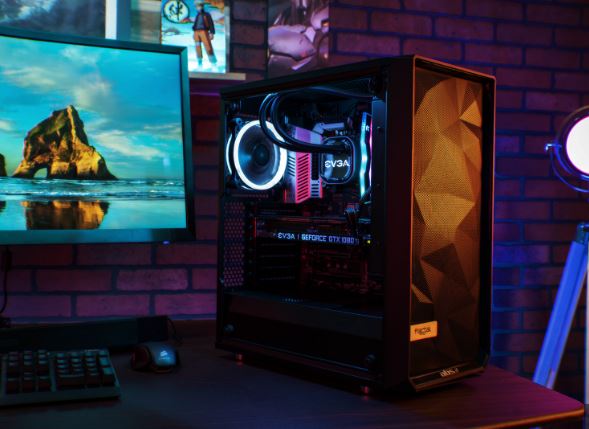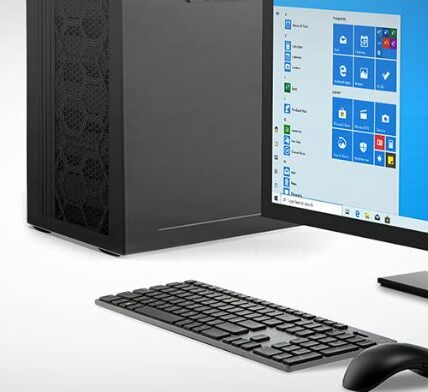Choosing the right desktop computer for gaming is crucial to ensure a smooth and immersive gaming experience. Whether you’re a casual gamer or a hardcore enthusiast, here are some key factors to consider when selecting a gaming desktop:
1. Processor (CPU): The CPU is the brain of your computer and affects gaming performance. Look for modern, high-performance processors from reputable brands like Intel or AMD. Higher clock speeds and more cores will generally result in better gaming performance.
2. Graphics Card (GPU): The graphics card is critical for gaming as it handles rendering and displaying images on your screen. Opt for a dedicated graphics card from top brands like NVIDIA or AMD. Consider the graphics card’s VRAM (video RAM) capacity, clock speed, and performance benchmarks for the games you plan to play.
3. RAM (Memory): Memory plays a role in how smoothly your games run. Aim for at least 8GB or more of RAM for gaming. More demanding games may require 16GB or even 32GB for optimal performance.
4. Storage: A combination of solid-state drives (SSD) and hard disk drives (HDD) is recommended. SSDs offer faster loading times, while HDDs provide more storage space at a lower cost. Ideally, have an SSD for your operating system and game files, and an HDD for additional storage.
5. Cooling System: Gaming can generate a lot of heat, so adequate cooling is essential to prevent overheating and maintain optimal performance. Look for a desktop with good cooling solutions, such as multiple fans or liquid cooling systems.
6. Connectivity and Expandability: Ensure the desktop has enough USB ports, HDMI or DisplayPort outputs, and audio jacks for your gaming accessories. Also, consider future expandability options such as additional RAM slots or PCIe slots for future upgrades.
7. Form Factor: Choose a desktop form factor that suits your preferences and space constraints. Tower PCs offer more customization options, while compact PCs like mini-ITX or all-in-one computers conserve space.
8. Price and Budget: Set a budget based on your gaming requirements and prioritize the components that matter most to you. Striking a balance between performance and budget is key.
9. Research and Reviews: Read reviews, comparisons, and user feedback to get insights into the gaming performance, reliability, and customer support of different desktop models and brands.
10. Warranty and Support: Check the warranty period, terms, support availability, and reputation of the manufacturer. A reliable warranty and good customer support can provide peace of mind in case of any hardware issues.
By considering these factors and determining your gaming needs, you can make an informed decision and select a desktop computer that will deliver exceptional gaming performance and future-proof your gaming experience.





